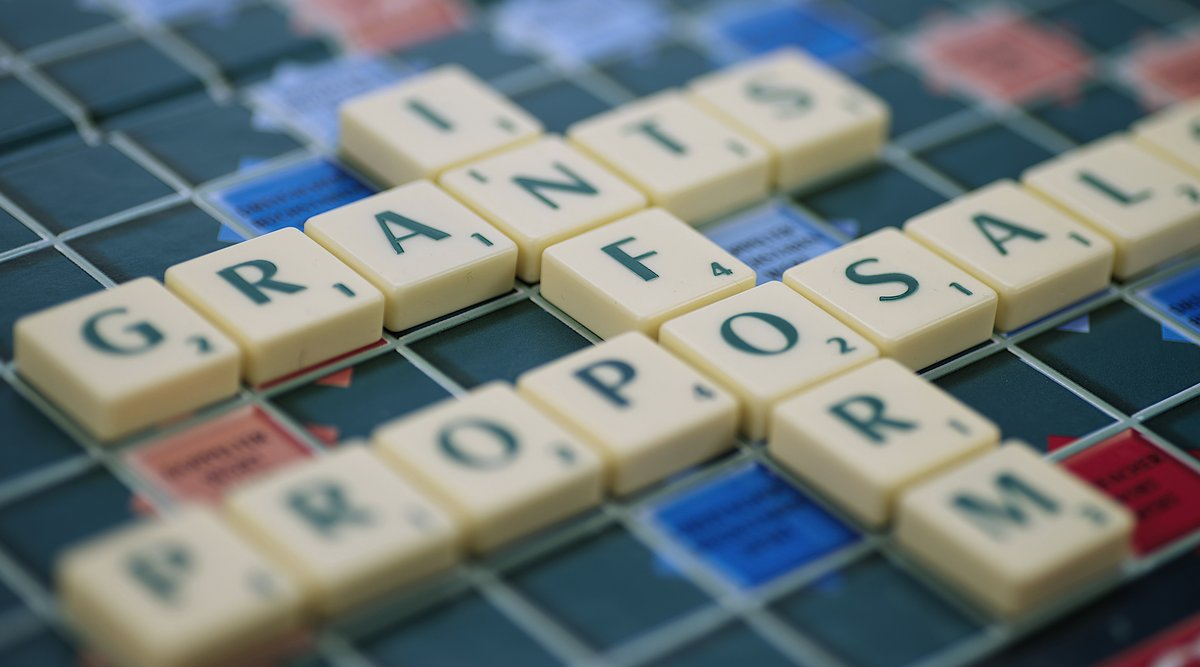
What are you planning to do?
Presenting a convincing project description
Many funding bodies provide guidelines or forms for preparing a proposal. Hence, every proposal will be structured differently and emphasize varying features. However, there are aspects that every grant proposal covers. On this page, we outline elements that are required for every successful grant proposal.
The information provided here does not replace a personal conversation. Please do not hesitate to contact us if you are interested in receiving feedback. We will gladly read drafts of your proposals.
Is this your first grant proposal?
Good and successful proposals are the result of a lot of hard work. In addition to the good ideas you already have, the secret to success is good preparation.
Before you start writing a proposal, you should consider the following issues: Where do I want this project to take me? What do I hope to achieve? What do I need to conduct the project? Do I have the necessary infrastructure and people at hand? Am I at the right place? Answering these questions will also help you identify the right funding body for your project.
Study the regulations of the funding organisations carefully. An empty page can be intimidating, but the guidelines an organisation provides can help you to structure and organise your writing. We suggest that, while you write, you keep in mind how a reviewer will read your text. Reviewers only have the information that you provide - they will not know that you have access to a specific data set or that you are well-trained in a certain methodology, unless you tell them. Further, keep in mind that reviewers are usually very smart, very nice, and very busy. Make it easy for them: Spell out what you want to do and do not assume that they will know how you will do something. Provide specific, detailed information on your project und be clear concerning any risks that the project might entail. It is a lot more convincing to address potential problems than to hope they will not come up.
What makes a good proposal?
You will receive many different answers to that question. For some, a good proposal is one that is funded. However, there are also good proposals that are not funded and proposals that are only funded after they have been revised. We do not believe that there is a formula for the perfect grant proposal. Still, there are elements that every proposal should include.
Research question
What do you want to find out? What is the problem that you want to solve? Ideally, you pose a clear question that guides your project and is included in your introduction.
State of the Art
What do we already know about the problem you are researching? In this section reviewers should learn that you know the relevant researchers and literature in your field. A solid overview over existing scientific knowledge also allows you to emphasise the relevance of your approach and to identify the gap you intend to fill with your research.
Relevance
Why is your topic important? The relevance of your topic will be obvious to you, but you will need to convince the reviewers why your research is interesting and worthy of funding.
Aims and objectives
What are the aims of your project and how do they relate to its content? Focus on describing the specific content you will be exploring in your research, not on the output such as publications or books. The most important factor for the scientific community is to learn something from your project.
It may be useful to define a general aim as well as subordinated aims. Along this structure you may guide your work programme and the individual work steps.
Work programme
The work programme is the heart of the proposal. You should describe in as much detail as possible what you want to do when: When are you going to do fieldwork or run experiments? How long will it take? The work programme should tie in with the previously defined aims and objectives - a well-defined aim will allow you to outline the work that is needed to reach that aim.
Your work programme should include all activities that you plan to do, including conferences. At what point in the working process would you like to present your research? Furthermore, make sure that you are clear on who is doing what - if you apply for staff salary for people other than yourself, it should be very clear who will be assigned which tasks.
Work programmes and timelines change. Maybe some parts of what you have envisioned doing, will not work out. Experiments may fail or people you wanted to interview will not agree to talk to you. Your work programme should take these risks into account and point out alternatives, a "plan b".
Methods
How are you approaching your research subject? Every grant proposal should include a section on methodology. Methodology may refer to a general approach or may refer to a very specific set of methods that you need to study a phenomenon. This section should show that you have chosen the right approach to your topic and that you are the right person to study it. Make sure to spell out what kind of training you have received if you are proposing a very specific methodology. After reading this section, a reviewer should be confident that you know what you are getting yourself into and that you are the right person to do it.
Impact
A section on impact is compulsory for applications within the European Union. Other funding organisations do not necessarily ask for a statement on impact, it may nevertheless be useful to consider it.
How do we define impact? We suggest two possible areas in which impact is an important factor. One focuses on your (sub)discipline: will your research change the way the community thinks about a core concept or phenomenon, i.e. does your research have an impact in your discipline beyond the specific question that you pose and answer?
Another way of thinking about impact focuses on the broader societal effects of your research project: who will be affected by the results of your research and how? Will you be able to answer a question that is only of interest to people in your subdiscipline or to a larger group of people as well? In other words: An agency that asks about the impact of your work may also be interested in the "return on investment" - what does society get back from your research in return for funding it? Hence, the impact section will be very different for each grant proposal and there is no one single right way to present it.

Budget
Every grant proposal needs a budget. We have compiled information on how to present a convincing budget on a separate budget page. Here, we want to stress the importance of having a budget that "fits" the proposal. A well-designed budget shows the reviewers that you know your project well and that you can realistically estimate what it will cost. Of course, you will need to be aware of the funding organisation's regulations and only apply for items that it will principally fund.
